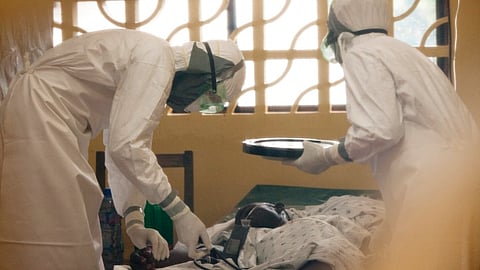

HOUSTON: Scientists have identified three naturally-occurring Ebola antibodies which could be used to design universal therapeutics that are effective against many different species of the deadly virus.
Ebola antibodiesSigns and symptoms typically start between two days and three weeks after contracting the virus with a fever, sore throat, muscular pain, and headaches.
Several strategies have been developed to treat Ebola infection, including ZMapp, which has been shown to be effective in non-human primates and has been used under compassionate-treatment protocols in humans.
"The trouble with ZMapp is that although it is effective against the Ebola species that was largely responsible for the last Ebola outbreak, it does not neutralise other Ebola species, including Ebola Bundibugyo, Reston or Sudan," said Alex Bukreyev, a professor at University of Texas Medical Branch at Galveston in the US.
"We identified and studied three naturally-occurring antibodies from human survivors of Ebola Bundibugyo that neutralise and protect against infection with the several different Ebola virus species," said Bukreyev.
The newly identified antibodies bond at a different site on the Ebola virus than other antibodies currently used to develop Ebola therapies, researchers said.
According to the US Centers for Disease Control, Ebola was first discovered in 1976 near the Ebola River in what is now the Democratic Republic of Congo.
Since then, the virus has been infecting people from time to time, leading to outbreaks in several African countries.